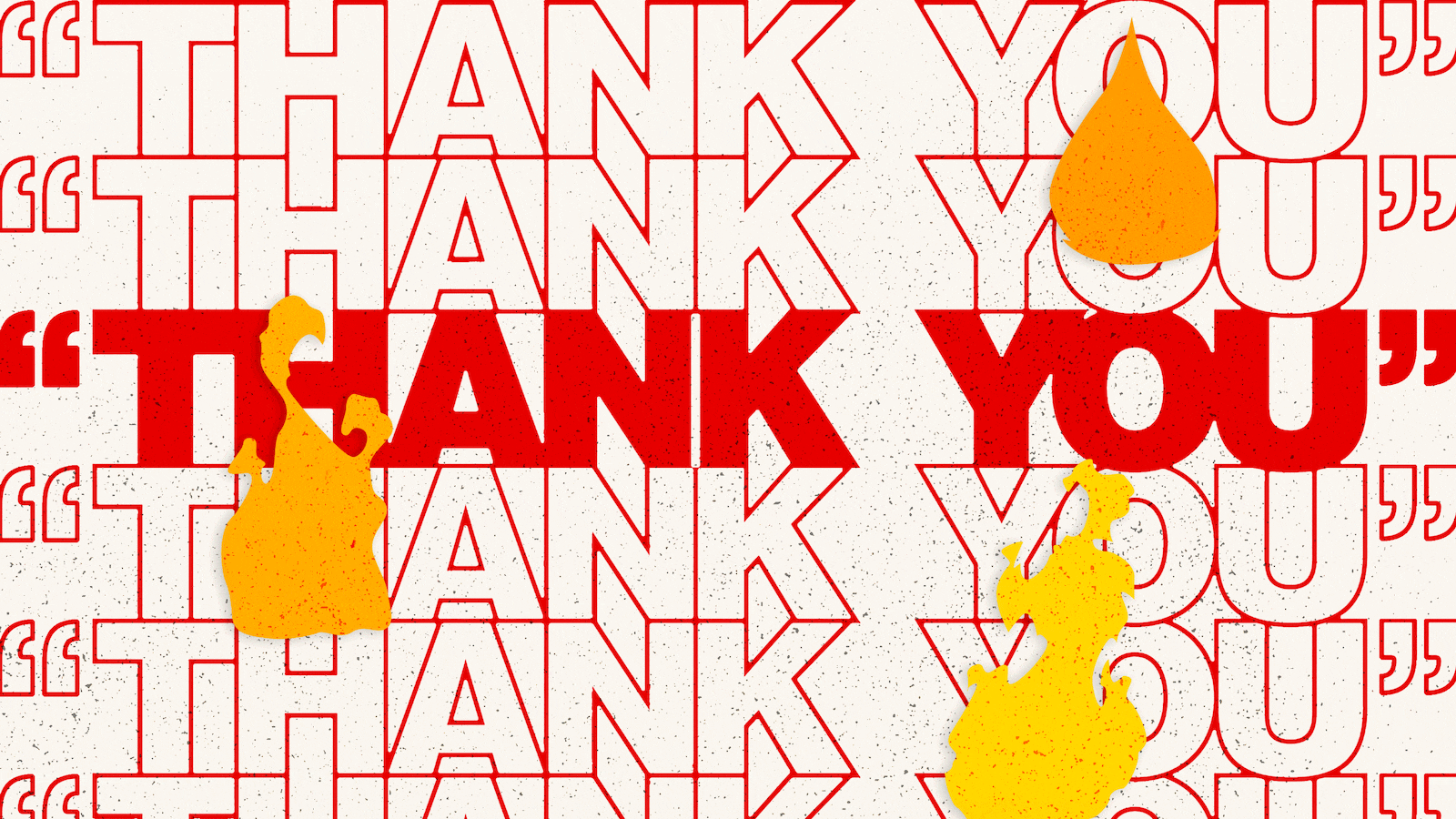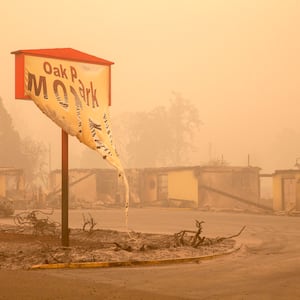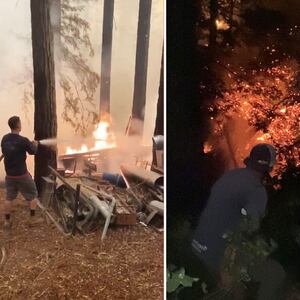As the West burns with 87 large active fires in 13 states as of Saturday, the federal government is doing its best to ignore the plight of the elite, overworked and underpaid Hot Shots fighting those fires for base pay of less than $14 an hour, a number President Biden has called “ridiculously low,” and who lose their medical coverage when the fire season ends because they are seasonal, part-time workers.
“Even with 1,000 hours of overtime, you’re counting pennies come January, February, and you’re waiting to go back to work in April or May. You need 1,000 hours of overtime just to exist in the winter,” says Jonathon Golden, who left the Hot Shots in 2019 after 12 seasons. “I left because the pay was just not enough. I found myself having to move around to move up, and after a while it didn’t make sense asking my wife to give up her job so I could go to a remote duty station somewhere and be gone for four months.”
The government classifies these highly skilled firefighters as seasonal, part-time “forestry technicians” even as they risk their lives in a fire season that’s become all consuming, starting earlier and ending later because of climate change. “Wildfire fighting is hot, miserable work, but it is not skilled labor,” California Rep. Tom McClintock said in early July, shortly before a fire raged in his heavily forested district, pulling in more than 2,740 firefighters. The backlash was immediate, and the Republican fiscal hawk eventually said his words had been “misconstrued” as he was trying to talk about how difficult it is to fill other entry-level forestry positions because of enhanced unemployment benefits.
But there’s no question that the firefighters are unskilled, in the sense that “unskilled” often serves as a Republican euphemism for cheap labor. If we learned anything during the pandemic, it’s how much we rely on low paid, yet utterly essential workers. To qualify, prospective Hot Shots must run a mile in six minutes and hike with a 50-pound pack to 1,000 feet elevation in 50 minutes on uneven terrain.
“You have to be in the best physical shape because your life might depend on it,” Golden told The Daily Beast. “People die every summer. This isn’t summer camp.”
According to the U.S. Fire Administration, between 1990 and 2019, there have been 502 firefighters killed during activities involving brush, grass or wildland firefighting—an average of 17 deaths per year.
Hot Shots stay with it because they love the allure of the job, but the low pay is taking its toll. Fully staffing the more than 100 Hot Shot crews assigned to the West is a challenge. These elite firefighters working for the U.S. Forestry Service earn half of what California pays its firefighters, and after the federal government’s “Fire Hire” last fall, its annual recruitment drive, there were 721 vacancies. Of the 50 Hot Shot crews deployed throughout the state of California, only 36 are fully staffed, according to Golden, who volunteers his time with the advocacy group, Grassroots Wildland Firefighters.
McClintock’s dismissive comment provided the inspiration for a video titled “Unskilled Labor” that follows a Hot Shot crew through the 2020 fire season. There is up-close footage of the firefighters working through the desert heat and dust to create a retardant line to contain fire. “Imagine taking a hoe out into the forest,” says narrator Jack Jones, a member of the Hot Shots crew and its videographer, describing the painstaking clearing of brush while others work with chainsaws to remove weakened trees. Winds can shift in a minute, spreading embers that can expand the fire and kill the firefighters.
Jones describes the hacking cough that is a side effect of working in these conditions, and asks viewers at the end of the video if they would do this grueling work for under $15 base pay. He says the federal government is “exploiting this idea of a seasonal employee.”
A lawyer friend whose 29-year-old son is a Hot Shot forwarded me the video. He didn’t want to be quoted by name for fear his son might suffer retribution, but in a series of emails and in a phone interview, he talked candidly about his son’s life:
He works 16 hour shifts for two weeks, then gets two days off, a lifestyle that makes it hard to sustain a relationship. He’s been all over Oregon, Colorado, North Dakota and Montana fighting fires. He makes 30 to 40 thousand a year, and most of that is overtime. A good chunk of his salary goes to pay the kennel fees for his dog. His health is at risk from breathing so much smoke at close range. If he didn’t have Obamacare, he’d be in rough straits.
As a little kid, the Hot Shot was taken with the PBS series “Band of Brothers” that followed “Easy Company,” a parachute infantry regiment in Europe during World War II. He was fascinated by this group of guys that stuck together in perilous danger. He was always drawn to this work and did it for another government contractor, which paid even less than the fire service. You were out on these beautiful vistas in a super inordinately dangerous situation and all the guys stick together to contain the fire.
He is in really good shape. On a recent fire, he had to sleep in an open field outdoors for 14 days. Then it was extended for a week. Three weeks without a roof over his head. When I visited him and his team, these guys remind me of the French Foreign Legion. They’re not your typical St. Albans kids. All had unusual stories and were attracted to the rough and real outdoor life and dangerous situations.
The common denominator is a love of adventure. Jonathon Golden was 18 years old and a week out of graduating high school when he saw a news clip on CNN of firefighters in Montana. “That’s what initially drew me in,” he said, “the notion of adventure.”
After signing on with a federal contractor, he got his first glimpse of a Hot Shot crew. “I was impressed by the organization, the camaraderie and the professionalism. I knew that was the goal. You stay in the job for the sense of adventure, and you stay because of the esprit de corps. It’s the most fun you’ll ever have being miserable,” he said with a laugh. “Because you become a support network for one another.”
Golden, now 39, has a public-policy consulting firm in Utah, and he thinks the under-resourcing of firefighters is part of a larger story about rehabilitating a changing landscape amid a changing climate. Getting the government to recognize the contribution of Hot Shots as unique public servants and to fairly compensate them, he says, would be a first step in a long journey to honor and preserve the West and our shared legacy as a country and a planet.
“It’s fun for a while,” Golden continued, “but when you get older, it has challenges and it’s kind of a trap. You don’t know anything else. And, on the surface, people don’t think the skills are transferrable.”
He recalls when the movie Only the Brave, starring Josh Brolin as the leader of the Granite State Hot Shots battling a devastating fire in Arizona, came out in 2017. Golden was doing outreach and recruitment at the time, and inquiries spiked because of the movie. “I had to remind them, You do remember how the movie ends?”
The movie was based on the true story of a 2013 fire in Arizona where 19 of the 20 Hot Shots died, trapped by the fire they had stopped from engulfing a nearby town.



